If you’re looking for some limerick examples, you’re in the right place!
Whether you’re seeking entertainment from this particular literary device or want to learn and understand it better, we’ve got you covered.
While covering most things about literature can be tedious and rigid, having the levity of limerick poems thrown in is like a breath of fresh air.
Many consider the limerick poem to be a tool to break a bout of writer’s block as it spurs creativity (as writing poetry usually does) and it’s easy to whip out, like this one:
A small block is causing you to fret
You’ve tried and tried, and there’s nothing yet
The limerick, with its quick word
Is the solution you’ve heard
In the fun wit, creative you’ll get.
Let’s dig in and learn more about the lively limerick.

What is a Limerick?
Limerick poems are specific types of poetry that appeared in England in the early 18th century.
However, the style is most often attributed to the 19th century when Edward Lear popularized it.
What distinguishes a limerick is its structure.
Limerick form calls for a short five-line poem that is predominantly anapestic trimeter with a rhyme scheme of AABBA where the first line, second line, and fifth line rhyme. The third line and fourth line are shorter in length and rhyme with each other.
This style is so popular it has its own day of recognition. National Limerick Day is observed every year on May 12th.
This limerick example by an anonymous author does a great job of demonstrating the art:
Limerick Example #1
A — The limerick packs laughs anatomical
A — Into space that is quite economical.
B — But the good ones I’ve seen
B — So seldom are clean
A — And the clean ones so seldom are comical.
As does this one by Fred Hornaday:
Limerick Example #2
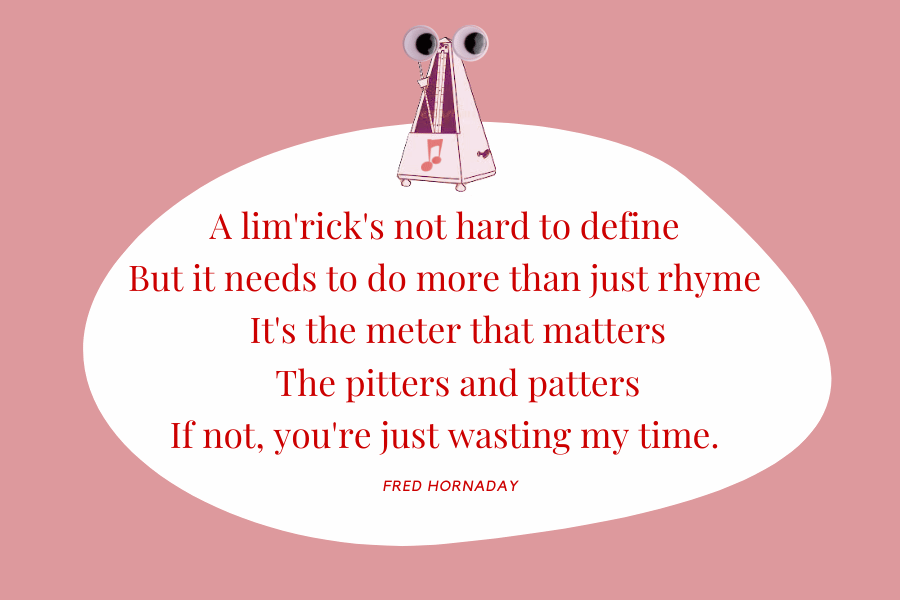
One peculiar thing about limerick poetry is that it rarely has a title. If you see one with a title, it’s usually just the poem’s first line.
You’ve undoubtedly giggled at the absurdity or blushed at the naughtiness of a limerick somewhere along the way, so it’s no surprise to learn that limericks are a poetic form of literary nonsense.
The Most Famous Limerick Examples
Without question, the most famous limerick is about a man from Nantucket.
Nantucket lends itself well to the clever wordplay of a limerick, so there are many variations to the original — so many that it’s not clear what the original was.
However, it’s believed to be the following written by Prof. Dayton Voorhees in 1902 for the Princeton Tiger:
Limerick Example #3
There once was a man from Nantucket
Who kept all his cash in a bucket.
But his daughter named, Nan
Ran away with a man
And as for the bucket, Nantucket.
The most famous of all traditional limericks is a nursery rhyme we all know. Hickory Dickory Dock first appeared in 1780 (or 1781) in a book called Mother Goose’s Melody, or, Sonnets for the Cradle, as the following:
Limerick Example #4
Dickery, dickery dock,
The mouse ran up the clock;
The clock struck one,
The mouse ran down,
Dickery, dickery dock.
Which later became the more popular:
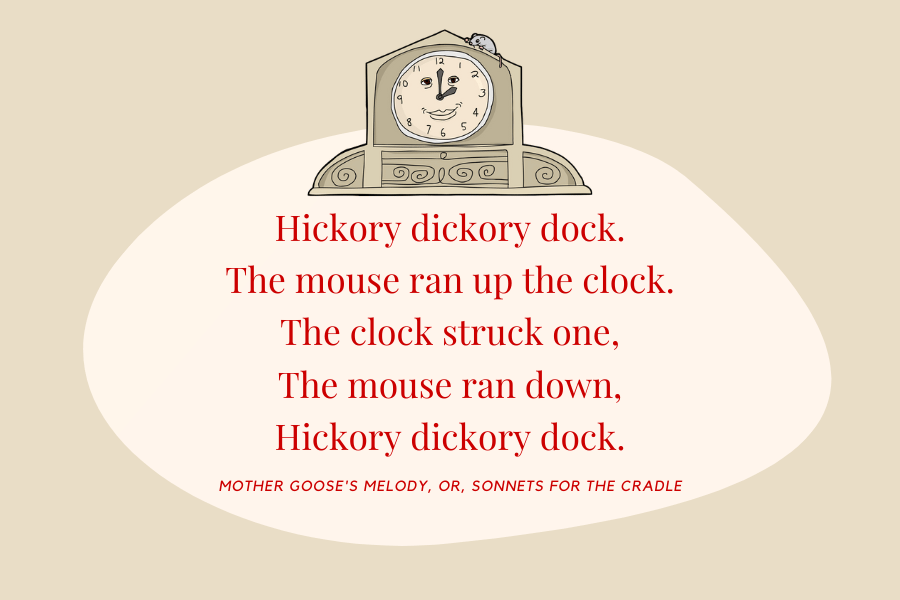
Any list of most famous limericks would be incomplete without some work by Edward Lear which brings us to one of his popular offerings:
Limerick Example #5
There was an Old Man with a beard,
Who said, ‘It is just as I feared!
Two Owls and a Hen,
Four Larks and a Wren,
Have all built their nests in my beard!
If these examples made you giggle, read on for another limerick poem example.
Funny Limerick Examples Guaranteed to Make You Laugh
What makes the limerick so appealing is its humor. Of course, humor is subjective, so not everyone will enjoy or appreciate the humor of every limerick author.
Below are some of the most universally accepted as funny limericks.
The author of this first humorous poem is unknown, which this writer finds particularly unfortunate as I appreciate their style:
Limerick Example #6
There was a young lady named Cager
Who, as the result of a wager,
Consented to fart
The complete oboe part
Of Mozart’s quartet in F major.
Ogden Nash was quite the witty writer when it came to his lyrics. He’s perhaps most well-known for this classic limerick:
Limerick Example #7
There was a young belle of old Natchez
Whose garments were always in patchez.
When comments arose
On the state of her clothes,
She replied, “When Ah itchez, Ah scratchez.”
Limerick Example #8
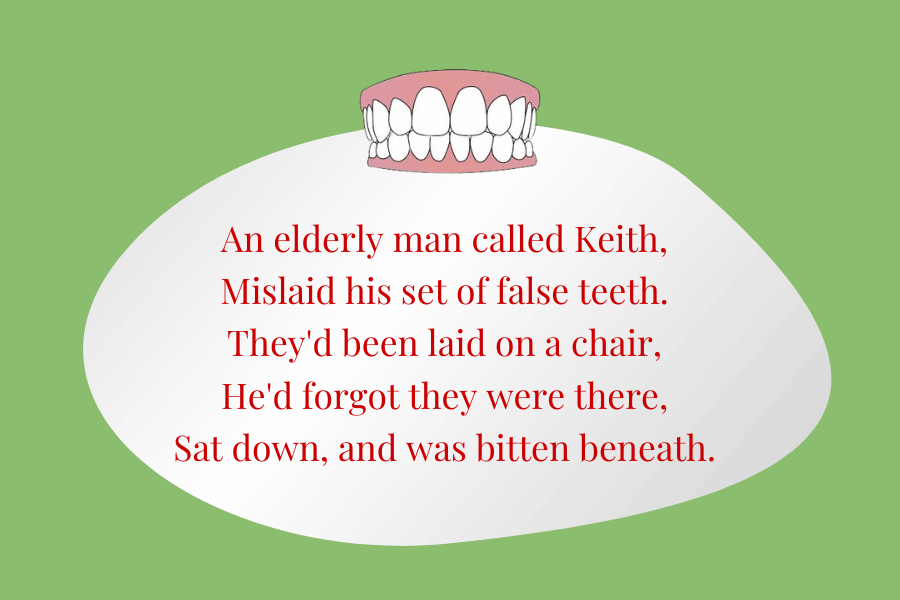
While all limericks share this whimsical style, some writers add a dose of innuendo or raunch to elicit a slightly different reader response.
Dirty Limerick Examples To Make You Blush
It’s impossible to give a thorough list of limerick examples without venturing into the dirty or naughty realm that the limerick does so well. It’s always just enough to cause a pause and a slight blush to the cheeks but in a way that doesn’t feel obscene.
Limerick Example #9
This one by Michael R. Burch only slightly ventures into naughtiness and is still sure to give you a smile:
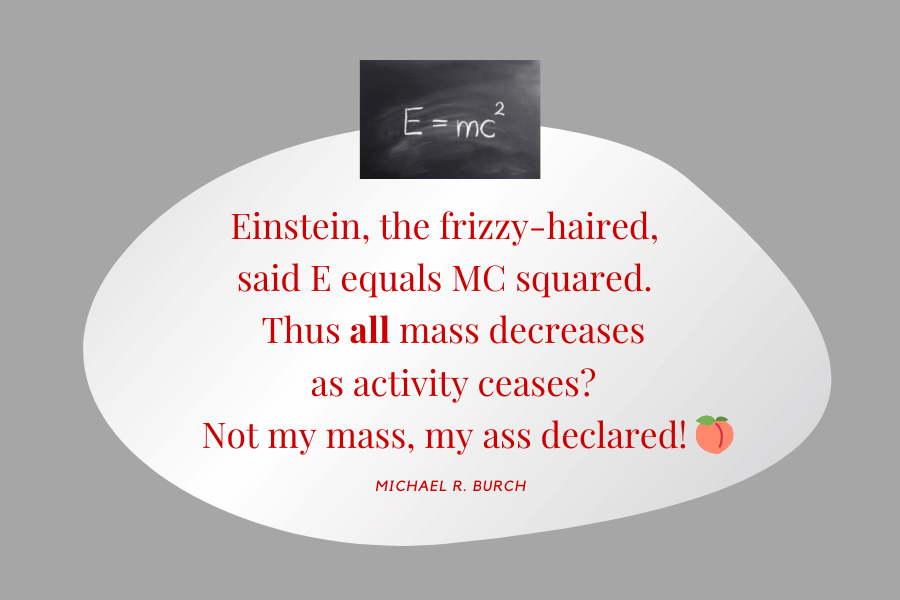
‘Anonymous’ is the most prolific author of naughty limericks. Some authors find them fun to write, even if they are too embarrassed to claim them publicly.
Here’s one you might enjoy:
Limerick Example #10
On the Breast of a woman named Gale
was tattooed the price of her tail
and on her behind
for the sake of the blind
was the same information in braille.
Anonymous also gets credit for this one:
Limerick Example #11
A pirate, history relates
Was scuffling with some of his mates
When he slipped on a cutlass
Which rendered him nutless
And practically useless on dates
This site is a professional one, so we’ll keep things PG-rated, but if more adult humor is your thing, you will find plenty of R-rated limericks with just a quick search on the internet.
Silly Limerick Examples For Kids
Silly limericks are a great first introduction to poetry for even the youngest kids.
A limerick is a nonsense poem; we know how kids love nonsense. Plus, a large part of the appeal of the limerick is its simplicity, which makes them ideal for younger audiences.
Edward Lear penned the following funny poem that has caused many giggles since its publication in A Book of Nonsense in 1846.
Limerick Example #12
There was a Young Lady whose chin,
Resembled the point of a pin;
So she had it made sharp,
And purchased a harp,
And played several tunes with her chin.
This kid-friendly limerick is another favorite by an anonymous author:
Limerick Example #13
A mouse in her room woke Miss Dowd
She was frightened; it must be allowed,
Soon a happy thought hit her
To scare off the critter
She sat up in bed and meowed
Carolyn Wells gives us a limerick that is also a bit of a tongue twister which seems to make it even sillier.
Limerick Example #14
A tutor who tooted a flute
Tried to teach two young tooters to toot
Said the two to the tutor,
“Is it harder to toot, or . . .
To tutor two tooters to toot?”
Graham Lester is another well-known limerick writer with many famous limericks to his credit, including this one:
Limerick Example #15
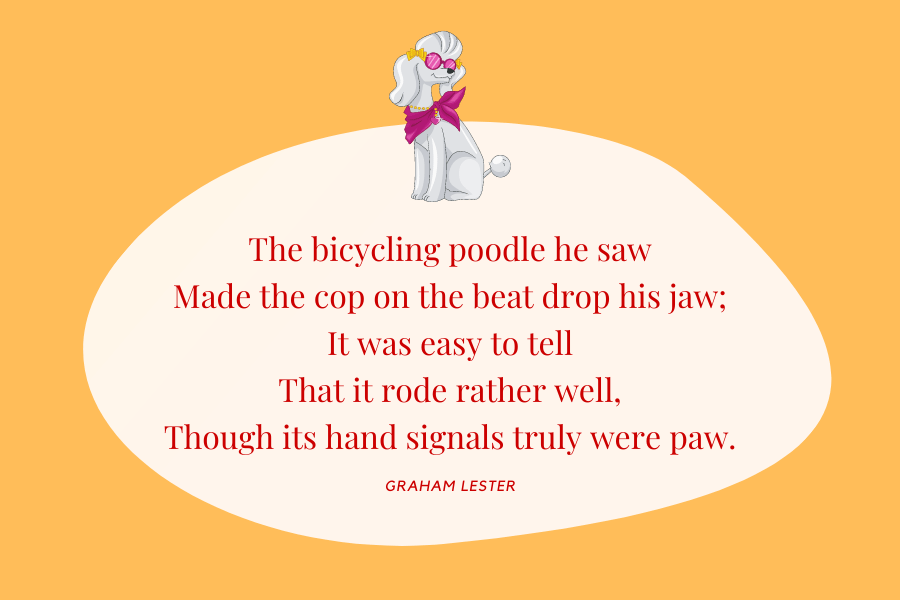
He also penned this one with its fun play on words:
Limerick Example #16
I arrived at the Hotel Belle Vue
With my kanga and motorbike too.
Said the doorman, “Good day!
Am I right when I say
That you’re needing a vroom with a roo?”
And he wrote this silly one that is great for kids because while it’s funny as it is, it also defines what a limerick is in a fun way that is easy to remember:
Limerick Example #17
What a limerick is in a crunch
Is a bit like a loony’s light lunch
Though it briefly delights
It’s just four nutty bites
Swallowed down with a ludicrous punch.
These examples make it easy to see why the limerick has stood the test of time and remains a respectable verse form. But reading is only half the fun when it comes to limericks.
Let These Limerick Examples Inspire You
So now it’s your turn!
Whether you’re trying to break a case of writer’s block, you want to exercise your creative writing muscles, or you just want to engage in some clever wordplay, I leave you with this:
Pick up your pen; these are fun to write
Not like long prose that may cause a fright
These take a short while
And might make you smile
You may want to write ten in a night!



